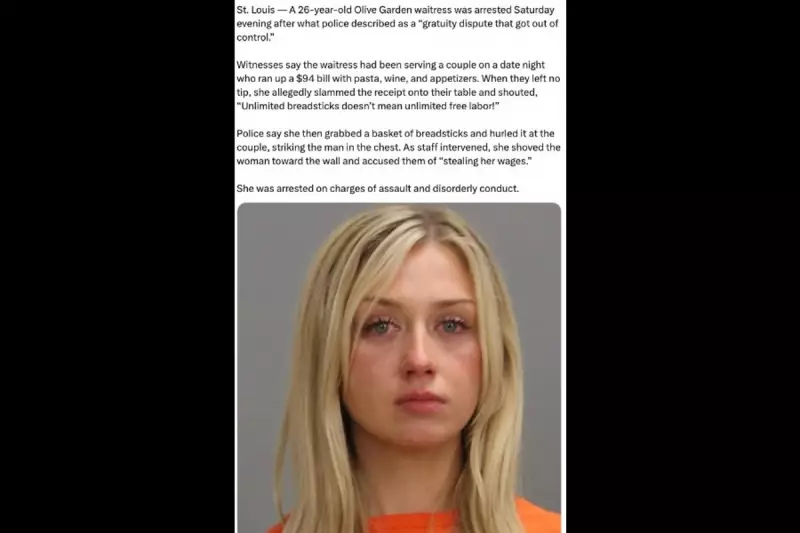
In a dramatic twist that highlights the perils of viral social media content, a heartwarming story about an Olive Garden waitress receiving an extraordinary tip from a grieving customer has been exposed as an elaborate fabrication.
The tale, which spread like wildfire across multiple platforms, claimed a server named Ashley had received a $1,000 tip from a customer mourning the anniversary of his wife's death. According to the fabricated narrative, the customer allegedly told her it was his wife's favourite restaurant and rewarded her kindness with the generous gratuity.
The Viral Deception Unravels
The truth emerged when Ashley herself came forward to reveal she had never received such a tip and the entire story was manufactured. The post, which originated on Facebook, had been shared thousands of times and captured public imagination with its emotional narrative.
"I was completely shocked when I started seeing my name and picture everywhere," Ashley explained. "People were congratulating me for something that never happened."
Social Media's Credibility Problem
This incident serves as yet another cautionary tale about believing everything that circulates on social media. Despite numerous red flags, including questionable details and lack of verification, the story gained tremendous traction.
Key warning signs missed by many sharers included:
- No verification from the restaurant chain
- Vague location details
- Emotionally manipulative narrative elements
- Original poster's questionable credibility
The Aftermath and Lessons Learned
Olive Garden representatives confirmed the story was false and expressed disappointment that their employee's identity had been used without permission. The restaurant chain emphasised their commitment to supporting their staff through legitimate recognition programs.
Digital literacy experts point to this case as a prime example of why social media users should practice healthy skepticism, especially when encountering emotionally charged stories that seem designed to go viral.
As Ashley told reporters, "It's scary how easily people believe things online without checking if they're true. I hope this makes people think twice before sharing."





